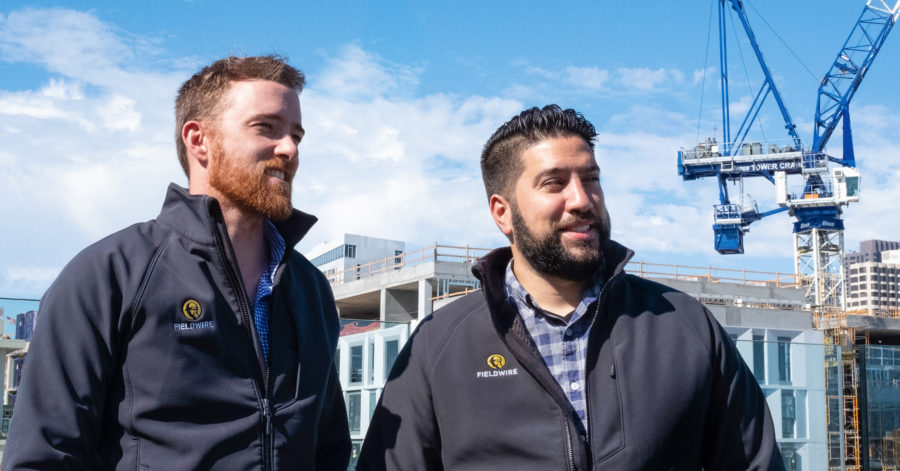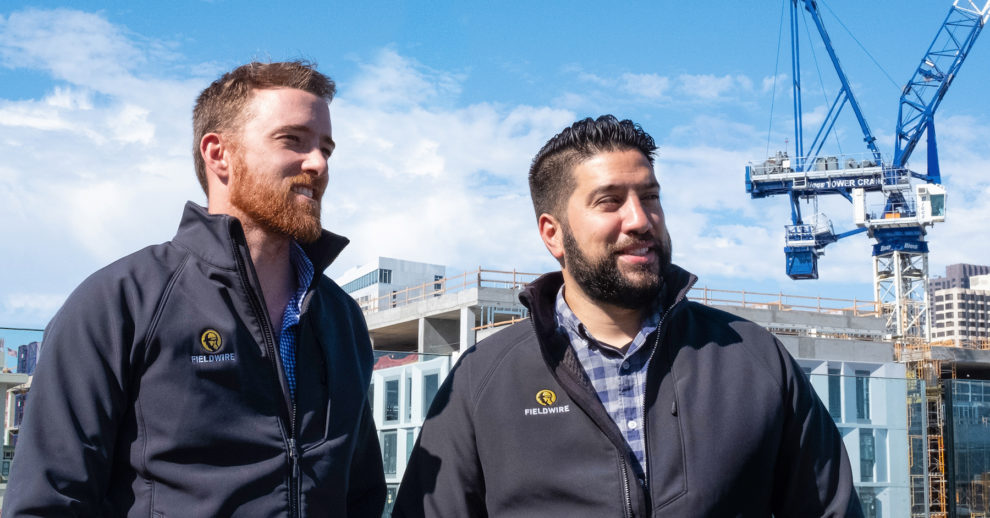This morning, Fieldwire, which has developed a cloud-based software product designed for those working in the construction field, announced it has raised $33.5 million.
Subscribe to the Crunchbase Daily
Menlo Ventures led the financing, which also included participation from existing investor Brick & Mortar Ventures, Hilti Group, and Formation 8. With the funding, which combines a previously undisclosed $8.5 million Series B and $25 million Series C, San Francisco-based Fieldwire has now raised about $40.4 million since its inception in 2013. As part of the financing, Menlo Ventures Partner Tyler Sosin is joining Fieldwire’s board.
We’ve written extensively about how the sector has seen increased investor interest in recent years. It’s an industry that has been historically run with a more old-fashioned mindset when it comes to technology. But as new leaders emerge and its workforce becomes more mobile while demand has surged with a healthy economy, the industry has slowly become more open to new technologies. This has given startups such as Fieldwire the perfect opportunity to come in and help improve efficiencies and productivity in an industry rife with challenges in both areas.
Fieldwire’s aim is to allow everyone involved in a construction project—from the back office to the numerous subcontractors onsite—to access and share information in real time. By offering a mobile-first solution, the company’s goal is to “make it easy for construction crews to track, record, and share project updates, ensuring proactive responses to all things related to quality, safety, and scheduling.” Users are typically project managers, engineers, and craft workers with a focus on labor coordination in an effort to help fuel productivity.

What’s interesting to me in covering this funding is just how bullish Fieldwire’s investors are about the company’s prospects. Both Menlo’s Sosin and Brick & Mortar Ventures founding partner and managing director Darren Bechtel raved at length about the company and its potential. One characteristic about Fieldwire that was particularly appealing to both is the company’s ability to be cash flow positive in an era when deeply unprofitable companies are going public and raking in huge funding amounts.
Indeed, being cash flow positive is impressive. Over the years, Fieldwire has quietly already been used by more than 2,000 companies across over half a million projects globally. It’s managed to win company-wide agreements with huge construction companies including Australia’s Built, EllisDon out of Canada, and U.S.-based Clark Construction Group.
By focusing on the craft workers and subcontractors, Fieldwire is winning over those in the field who are then taking their observations to company’s decision-makers, according to Bechtel.
Background
In a phone conversation Fieldwire CEO Yves Frinault said that when he studied construction at Stanford University, he observed that most technology was aimed at architecture and design firms. With parents who had remodeled houses as a hobby, Frinault had seen firsthand how behind the construction industry was when it came to utilizing technology to make projects go faster and more smoothly.
“You’d go from looking at a 3D model to going to a site where it was back to the Stone Age with paper and pencil,” he said. “Everybody was trying to plan the perfect project. But if you’ve spent any time on a [construction] site, you know it’s always different than what you plan. I recognized we needed better tools to organize teams and adapt to findings.”
This was around 2006-2007 and Frinault realized his ideas were a bit nascent for this technology-resistant industry.
“The cloud was not something construction companies were comfortable with at that time,” he said.
So Frinault left his idea on the backburner until about 2013 when he and co-founder Javed Singha both quit their jobs to make the concept behind Fieldwire a reality.
“I remember saying ‘Let’s give each other six months to see where we can get and if not far, we can look for another job,’” he recalled.
To their surprise, it wasn’t small companies that were initially interested in using the Fieldwire platform. “Really big companies” started showing interest.
“We were only five people at the time,” Frinault said. “It was a little scary. But we kept building, and selling the product.”
The startup raised a $5.5 million Series A in 2015 and continued to grow. It found that word of mouth was drawing more attention to its offering.
“Most companies in our space tend to distribute from the top down with sales people trying to convince people to use it,” he told me. “But we distributed a built product with foremen on site who downloaded our app and started sharing it with more and more people so that ultimately, the headquarters of a company would have everyone in that company using it.”
As the company started getting “some large deals,” it recognized the need for more capital, hence an $8.5 million undisclosed series B “insider round” and more recently, a $25 million Series C.
Fieldwire has been cash flow positive since December of 2018 and growing rapidly. Unlike other SaaS companies, Fieldwire said it is at an advantage because most construction companies pay for a year upfront as opposed to a month-to-month basis. As such, the company has seen its annual recurring revenue (ARR) increase two to three times every year, according to Frinault. Currently, Fieldwire has 65 employees, up from 35 at the beginning of this year, with plans to reach 150 by next summer.
“With this raise, we’re going to start hiring very, very aggressively so we might see that change,” Frinault said. “But every dollar we’re raising is not to finance heavy burn. We didn’t need to raise it and could have raised twice as much if we wanted. But the capital will allow us to build a better company.”
Looking ahead, Fieldwire plans to use the new funds to fuel research and development as well as to further global expansion. Besides its San Francisco headquarters, the company has offices in Phoenix, Arizona, and Paris, France. The company plans to open an additional office in Australia by year’s end.
“We already have very large customers in Australia,” Frinault said. “Our model allows us to not need to be physically present in every market until we have very large customers there. At that point, it’s good practice to be able to visit them once in a while.”
Investors Weigh In
For Menlo’s Sosin, the investment is in line with his firm’s ongoing thesis of looking for “really attractive vertical SaaS opportunities.”
“We were very familiar with the size of the construction space, and knew it was a Luddite category in terms of adopting technology,” he said. “At the same time, as the guard in construction seemed to be changing with the older people who were resistant to technology retiring to younger people with smartphones in their hands, there were suddenly higher expectations of doing things in a more digitally native way.”
Menlo recognized that construction was going to be one of the last big industries to use mobile and cloud-native software so the firm spent time in the sector looking for opportunities.
One of the things that gets Sosin excited about Fieldwire is that it has managed to “build out a huge amount of functionality” around task management.
This gives field workers a “digital Bible” of sorts to be able to see what’s been done and what’s been done correctly, he said.
Menlo is also impressed with the startup’s distribution model, which has helped with its capital efficiency.
“It’s easy enough for people to download and use and because it’s designed so well it’s spread virally,” he said. “One person on a project uses it and then suddenly the entire project adopts it and then the GC began using it in a couple of projects and then they’ll get an enterprise license to use on all their projects. It’s a very powerful model that not a lot of companies have been able to achieve.”
Brick & Mortar Ventures’ Bechtel, who first invested in the company in 2016, agrees.
Fieldwire, he said, went from an era of only construction-minded VCs really seeing its value to getting “term sheets from great tier 1 VCs.”
“It’s exciting to see that play out as we’d hoped,” Bechtel said.
Photos courtesy of Fieldwire; Blog Roll Illustration: Li-Anne Dias
Note: This article was updated to reflect that this was not Menlo Ventures’ first investment in construction tech, and to break down the stages of the investment.

Stay up to date with recent funding rounds, acquisitions, and more with the Crunchbase Daily.







![Illustration of a guy watering plants with a blocked hose - Global [Dom Guzman]](https://news.crunchbase.com/wp-content/uploads/quarterly-global-3-300x168.jpg)
67.1K Followers